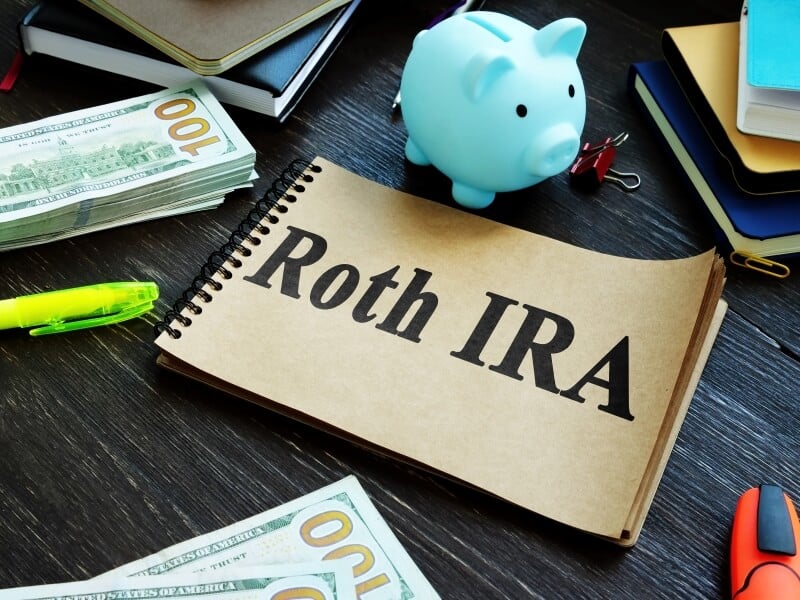A Roth Conversion Opportunity You Don’t Want to Miss
2010 doesn’t just mark the end of another decade; it also marks a unique window of opportunity for those who own sizeable IRA or other retirement accounts. Congress has provided an opportunity to convert many of those retirement accounts into Roth IRAs. For many, this roth conversion opportunity will be a great way to lower taxes and increase control over their estates.
First let’s take a look at the basics of retirement plans. Most retirement plans (IRAs, 401ks, etc) allow you to contribute money before tax, enjoy tax free earnings, and then pay tax only on what you withdraw. To make sure that you pay your fair share, you must start making withdrawals when you turn 70 ½. The Roth on the other hand allows you to make contributions after tax, but then you get to enjoy tax free earnings, and you do NOT pay income taxes on your withdrawals. Additionally, there is no minimum withdrawal requirement for most Roths.
Generally speaking, if you do not plan on using some or all of the money in your traditional retirement account, you would have considered converting some or all of it into a Roth. Unfortunately, up until now, the roth conversion opportunity was limited to those under a certain income threshold. In 2010, the conversion limits are repealed, and you have an option to pay the tax liability on the amount converted as part of your 2011 and 2012 tax returns. That added tax deferral may make this one of those opportunities you can’t refuse. Let’s look at the details.
Who Can Convert?
Traditional IRA owners can convert, as can participants in 401ks, 403Bs and 457 Plans, as long as they are eligible to take a distribution and the funds are eligible for a rollover. Spouses who inherit an IRA can make the conversion. Non-spouse beneficiaries of an IRA cannot make a conversion, but non-spouse beneficiaries of a company plan can make the conversion. Nobody said tax laws made sense.
How Will Roth Conversions Be Taxed?
The amount that is converted – and remember you can convert all or a portion of your retirement plan – will be subject to income taxes at the rate which applies in the year you declare the withdrawal. You have two options as to when you declare the withdrawal. (1) You can include the entire amount you withdraw in your 2010 income and pay taxes at your 2010 rate. We all know what those rates are, so this option has the advantage of certainty. (2) You can defer the declaration of the 2010 withdrawal and then split it evenly in your 2011 and 2012 tax returns. This defers the tax and spreads its payment over two years (2011 taxes are due in April of 2012, and 2012 taxes are due in April of 2013), but we have no idea whether tax rates will be higher in these years than they are in 2010, so you lose some certainty with this option.
Once you’ve made the conversion, you will never have to make a withdrawal from the Roth unless you want to, and you will not have to pay income taxes on the amount you withdraw. Your spouse will not have to make withdrawals from the Roth either, unless of course he or she wants to, and there will not be any income taxes on those withdrawals. Now, if you pass on the Roth to non-spouse beneficiaries, they will have to withdraw funds over their lifetime, but they should generally be tax free. As you can see, Roth conversions offer some interesting tax advantages.
Should You Convert?
Figuring out whether you should convert a retirement account to a Roth can be confusing and does require some detailed analysis to answer the question with certitude, but there are some general guidelines.
First, if you don’t need the money for at least 10 years (and hopefully longer), Roth conversions generally make sense. This is usually enough time to justify paying the income tax on the conversion up front (or on 2011 & 2012 tax returns). The growth in the Roth over these 10 years plus the tax free withdrawals at the end really make this an attractive option. Short of 10 years, it’s usually not an attractive option.
Second, if you can pay the tax that is due from sources other than the retirement plan account’s value, this further shifts the calculation in favor of making the conversion. For example, if you have a $100,000 conversion and will owe $15,000 in taxes, you can either take the $15,000 off the top and actually deposit $85,000 into a Roth (this is paying the tax from the retirement account), or you can find some other source for the $15,000 tax and deposit the full $100,000 into a Roth (this is paying the tax from outside the retirement account). The more you can get into the Roth, the better off you will be, so paying the tax from other sources makes the most sense.
Third, if you are willing to structure your Roth account a bit more aggressively than you might otherwise do with a traditional retirement account, then the extra earnings and growth you should receive over a long period of time will make the Roth conversion all the more attractive.
Final Thoughts
Roth conversions offer some great planning opportunities for those who own them and, in the right circumstances, can provide generous benefits for future generations of the Roth owners. To make the final decision, you need to really crunch the numbers, but you also have a safeguard built in for 1 year. Congress will allow you to undo your conversion up until October 15, 2011 if you find that it’s just not working. We recommend taking a serious look at this opportunity before it vanishes.

